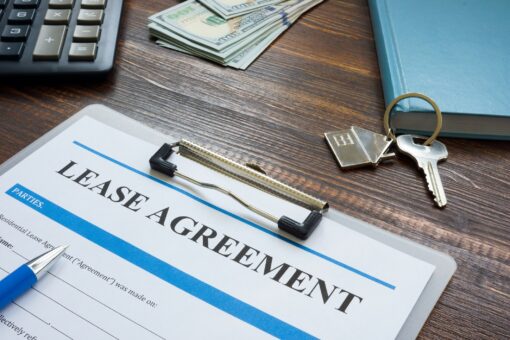Individuals grappling with an insurmountable burden of debt, whether stemming from credit cards, medical expenses, payday loans, or utility bills, often find solace in Chapter 7 bankruptcy. This form of bankruptcy permits qualifying individuals to rid themselves of unsecured debts (such as credit card dues) while deciding whether to reaffirm or redeem secured debts (such as auto loans or mortgages).

A recurring question for many individuals eligible for Chapter 7 bankruptcy, especially those who don’t own their homes or vehicles, is how their lease contracts will fare during the bankruptcy proceedings. Read on to learn more and contact The Law Offices of Paul Y. Lee at 951-755-1000 to speak with a bankruptcy attorney.
Maintaining Vehicle and Residential Leases
Once you file for bankruptcy, you have the choice to either retain (continue) or terminate your auto lease or residential rental contract. However, the final decision doesn’t rest with you. The bankruptcy trustee tasked with overseeing your case can decide to cancel any lease contract they deem to be unfairly depleting the value of your bankruptcy estate. Nonetheless, in reality, vehicle and residential leases are seldom revoked by the bankruptcy trustee. After all, leaving you homeless or without a means to earn a livelihood does not benefit them in any way.
Implications of Chapter 7 Bankruptcy on an Ongoing Eviction
Regrettably, some individuals have attempted to evade eviction by filing for bankruptcy. Since the implementation of the Bankruptcy Abuse Prevention and Consumer Protection Act in 2005, such a move has become increasingly difficult. If your landlord has already obtained a judgment against you allowing them to repossess the property, your lease contract is practically nullified and won’t be included in the bankruptcy.
This means it’s not protected by the automatic stay, and your landlord can proceed with eviction without seeking approval from the bankruptcy court. That being said, you may still be able to persuade the landlord to halt the proceedings if you settle the overdue rent and prepay the future rent.
Chapter 7 Bankruptcy and the Automatic Stay Protection
One of the perks of filing for bankruptcy is the initiation of the automatic stay once your petition is accepted. During this phase, creditors cannot take any action against you without obtaining special approval from the bankruptcy court, including your landlord.
However, your landlord can request a lifting of the automatic stay to initiate eviction proceedings, typically in cases where the eviction is due to rent arrears. If the eviction is based on allegations of property endangerment or illegal drug usage on the premises, the landlord doesn’t need to have their petition approved; they can simply submit a certification to the bankruptcy court. Should you fail to file an objection within 15 days, the eviction process will commence.
Key Takeaway
Provided your lease contracts are affordable and you are abiding by all the agreement’s terms, in most instances, both the bankruptcy trustee and the creditor or landlord will be content to let you continue the contract during your Chapter 7 bankruptcy.
For any queries or concerns, please reach out to a Chapter 7 bankruptcy attorney for guidance before proceeding with filing. Contact The Law Offices of Paul Y. Lee at 951-755-1000 today.

